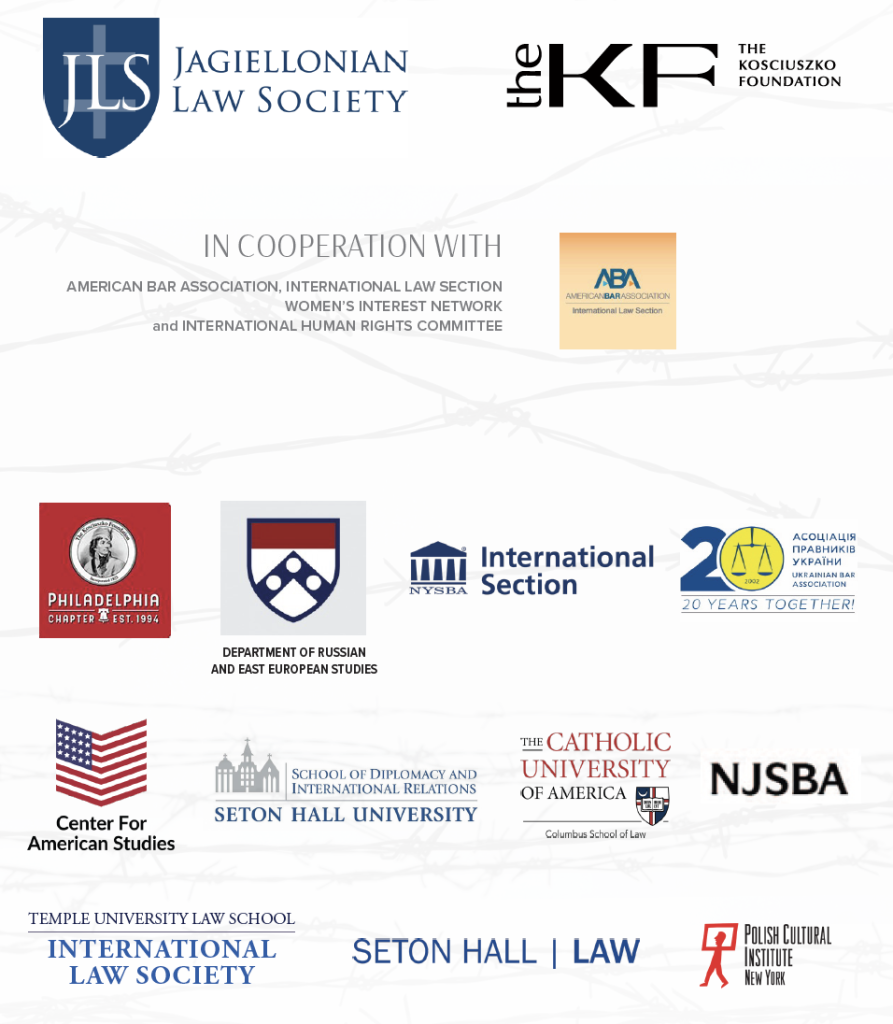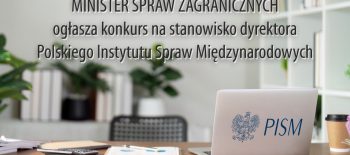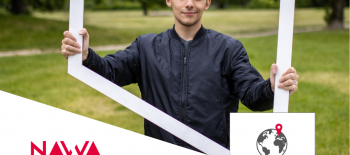Tuesday, March 14, 2023 at 12pm ET/ 6pm CET
Webinar Link
Keynote Speaker, Part II: Stephen Rapp, The United States Ambassador-at-Large for Global Criminal Justice Lemkin, Genocide, & the Modern World
Moderator, Part I and II: Elizabeth. M. Zechenter, Ph.D., J.D. a visiting scholar at the Emory University
Featuring the Distinguished Faculty Speakers:
Professor Agnieszka Bieńczyk-Missala
Prosecutor Thomas Hannis
Dr. Ivan Horodysky
Professor Doug Irvin-Erickson
Professor Roman Kwiecien
Professor Donna Lee-Frieze
Professor Marcin Marcinko
Professor A. Dirk Moses
Professor Ana Filipa Vrdoljak
Dr. Mykola Yurlov
This two-part webinar features US Ambassador Stephen Rapp as the keynote speaker and a panel of distinguished international academics who will discuss Rafael Lemkin, the crime of “genocide,” and the UN Genocide Convention in light of the recent Russian aggression and various crimes committed in Ukraine.
Rafael Lemkin was a Polish Jewish lawyer best known for coining the term genocide and a key person behind the UN Genocide Convention. He was a complex person with many loyalties and varied life experiences that influenced his work. While often portrayed as a lone ranger, he effectively gained support for his ideas, especially among women groups who made the UN Genocide Convention possible. However, Lemkin was deeply troubled by the fact that Stalin’s revisions to his draft of the Convention carried the day, significantly weakening his original ideas and the ability of the UN to prosecute “genocide.”
Rafael Lemkin was twice nominated for the Nobel Peace Prize. On the 50th anniversary of the Convention entering into force, Lemkin was honored by the UN Secretary-General as an inspiring example of moral engagement.
The webinar will discuss how some countries carried successful prosecutions of genocide under their national laws and compare that with various special international tribunals, which were created to address various acts of genocide committed after WWII. As a result of Russian aggression against Ukraine, various crimes meeting the criteria of “crimes against humanity” and “war crimes” as well as the “crime of aggression” are being committed. Arguably, Russian aggression has also indicia of “genocide” and the “incitement” to genocide. The faculty will discuss potential uses of the UN Genocide Convention and other international laws and instruments to prosecute the crimes committed by the Russians in Ukraine via either international or national courts using universal jurisdiction or via special tribunals under the UN auspices.
Short Biography of RAFAŁ LEMKIN
He was born Rafał Lemkin on June 24th, 1900, in Bezwodne, a village near Grodno (today’s Belarus). He and his two brothers were home-schooled by his mother, who was well-educated and had an extensive library.
Later, Lemkin studied law and political science at the University of Lwów (than part of the newly resurrected Poland, curently Ukraine) and obtained a doctorate from the University of Lwów. In 1929, he began teaching at Tachkimoni College in Warsaw. He was a member of the Warsaw Bar and became a public prosecutor. He represented Poland at several conferences all over the world. Lemkin also served on the Polish Law Codification Committee and helped draft the criminal code of a newly independent Poland.
Lemkin was a polyglot: speaking nine languages and reading fourteen. From an early age, he was fascinated by atrocities and would often question his mother about such historical events as the battle and the subsequent massacre of Carthage, various Mongol invasions and conquests, or the persecution of Huguenots. Lemkin was also disturbed by the persecution of early Christians by Roman emperor Nero when he read the novel “Quo Vadis” by Henryk Sienkiewicz. Finally, he was concerned about the slaughter of Armenians by Turks during the First World War and the mass murder of Christian Assyrians by Iraqis in 1933. He considered these acts grave crimes in 1933 and presented his first proposal to outlaw such ‘acts of barbarism’ to the Legal Council of the League of Nations in Madrid.
Once the Germans invaded Poland, Lemkin left Warsaw on September 7th and reached Stockholm via Wołkowysk, Wilno and Riga where he got a job as a lecturer at the University of Stockholm. One year later he arrived in the U.S. and joined Duke University where he taught comparative and roman law. He did his research of Nazism at Duke University and analyzed Nazis’ laws that allowed Germans to legally eliminate entire groups of peoples, he labeled this crime a ‘genocide’ (from Greek genos meaning ‘race’ and Latin cide meaning “killing’). His work was published in 1944 in the landmark book “Axis Rule in Occupied Europe.”
In 1945, he presented the first draft of the Convention on the Prevention and Punishment of Genocide at the Paris peace conference in 1945, but his initial proposal was unsuccessful. After years of lobbying, on December 9th, 1948, the Convention on the Prevention and Punishment of the Crime of Genocide was adopted unanimously by the United Nations General Assembly.
For more information, see Raphael Lemkin’s Legacy in International Law by Agnieszka Bieńczyk-Missala, in “The Concept of Genocide in International Criminal Law,” Routledge, 2020 and “Totally Unofficial: The Autobiography of Raphael Lemkin” edited by Donna Lee Freeze, Yale University Press.
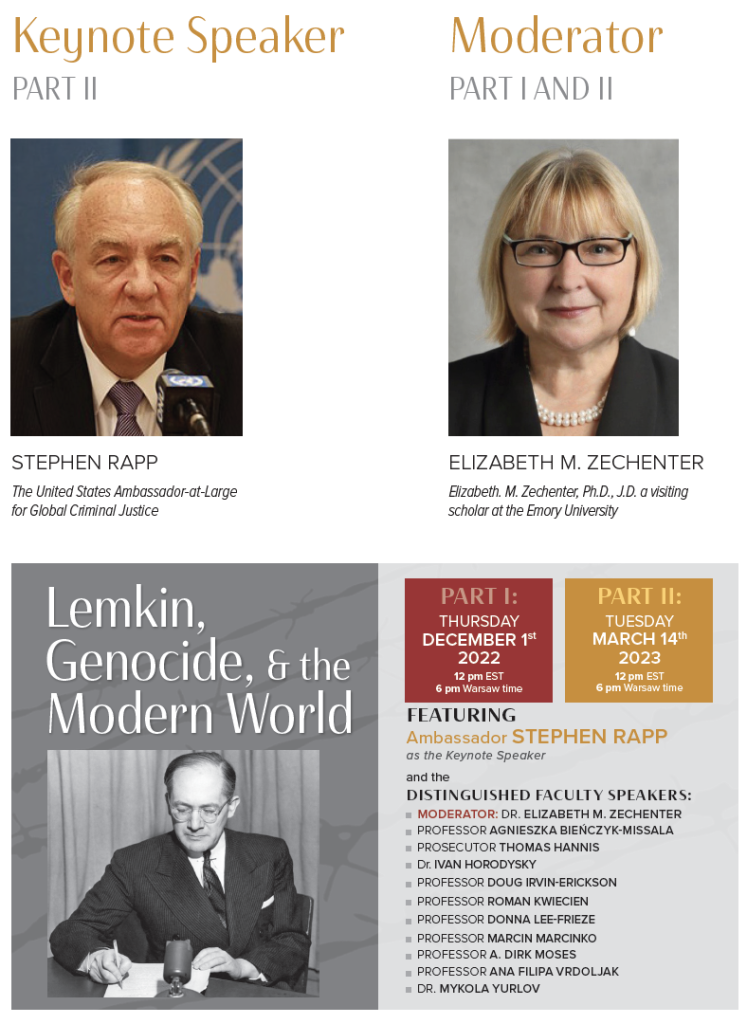
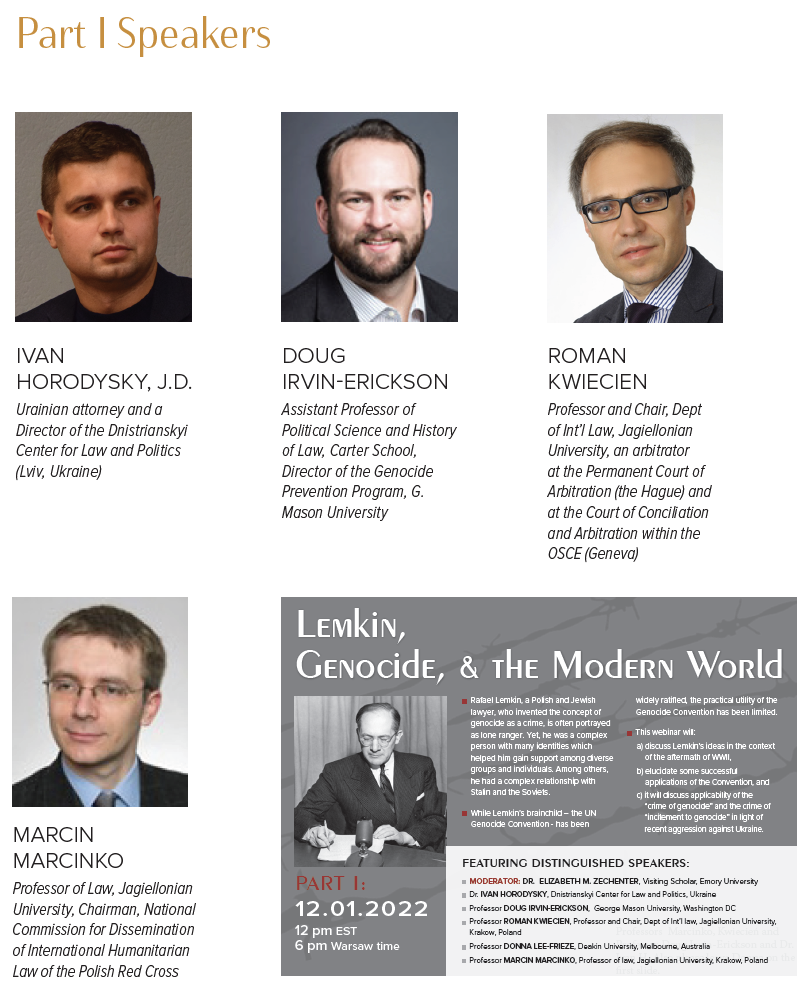
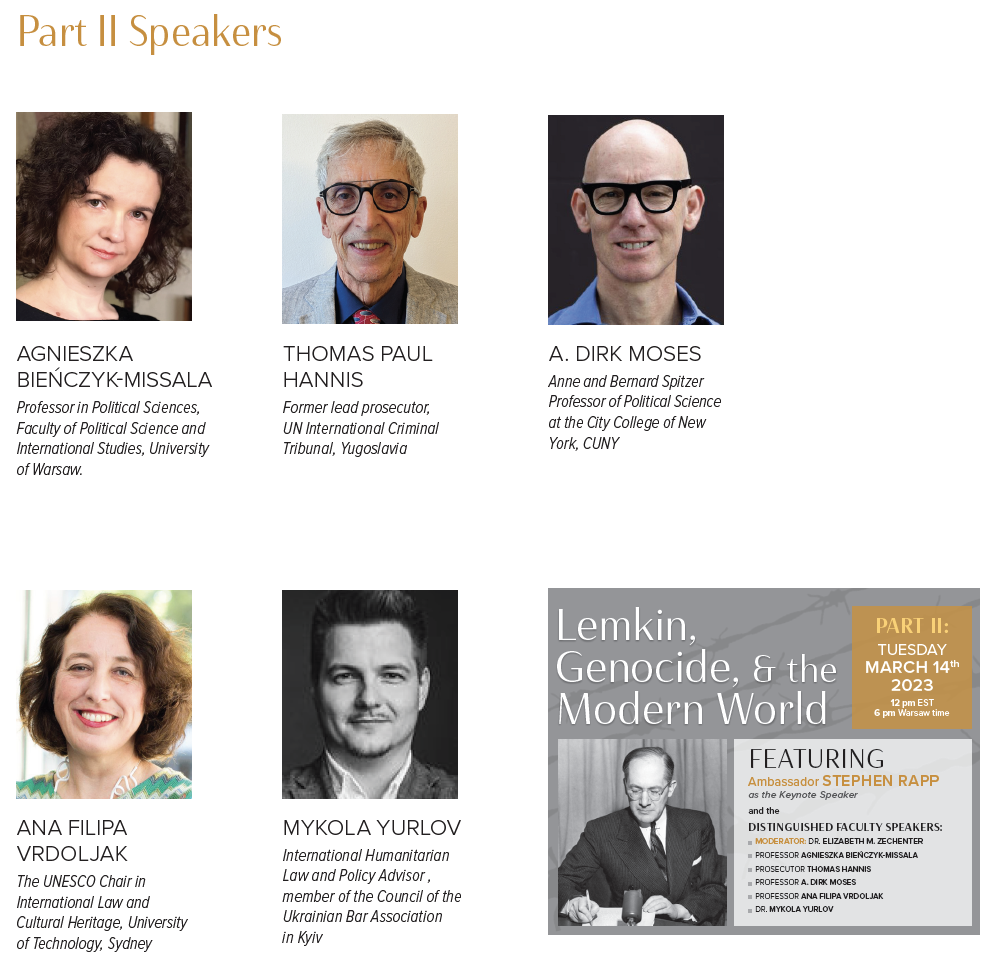
The Jagiellonian Law Society (JLS) is a voluntary legal association of a diverse group of professionals (lawyers, judges, law faculty, and law students) who are interested in, or have roots in Polish and Central/Eastern European (CEE) cultures. Membership in the JLS is open to any legal professional of any country who shares our interests and goals.
Our members are committed to fostering understanding and respect between different countries, cultures, institutions, and legal systems, to eliminating bias and enhancing tolerance in the United States, Poland, CEE, Europe and around the world. We would like to deepen the understanding of Polish and CEE cultures and history in the United States. JLS also aims to strengthen the ties between legal professionals and legal organizations in the US, Poland, and CEE.
We are nonsectarian and nonpartisan. As an organization with many multicultural, bicultural, and bilingual members, JLS strives to advance the rule of law and to protect human rights for all people. We affirm the dignity of every individual and stand against prejudice and stereotyping of any group through promoting the rule of law, open access to courts, international cooperation, and fair, independent, and equitable legal institutions.
We aim to become a go-to forum for issues of legal importance for the American, Polish, Polish American, and other CEE legal communities in the United States and Poland.
Through pro bono work, educational programs, scholarships, and various social activities, we engage our members from throughout the entire legal community in the US, Poland and in CEE. We cooperate with various legal and professional and academic organizations to further our goals. We sponsor CLE events, lectures, fundraisers and social gatherings and we offer scholarships and merit-based grants. We celebrate the depth and richness of Polish culture as well as that of other CEE countries and we support various cultural and artistic events. We provide referral services to our members and to a larger community.
Founded in 1925, the Kosciuszko Foundation promotes closer ties between Poland and the United States through educational, scientific and cultural exchanges. It awards over $1 million annually in fellowships and grants to graduate students, scholars, scientists, professionals, and artists, and promotes Polish culture in America. The Foundation has awarded scholarships and provided a forum to Poles who have changed history.
In the 18th century, Tadeusz Kosciuszko said , “By nature, we are all equals – virtue, riches, and knowledge constitute the only difference.” Education is the key to success, and Kosciuszko dedicated his life to the liberation and education of the underprivileged. In his will from 1798, he stipulated that the entire proceeds of his American estate be spent on freeing and educating African-American slaves, including those of his friend Thomas Jefferson, whom he named as the will’s executor. In the 20th century, another virtuous Pole, Harvard graduate, Professor Stephen Mizwa, followed his example and established the Kosciuszko Foundation whose primary mission is to promote education and Polish culture.
As the years rolled on and the challenges facing Poland changed with the times, the Foundation’s work has evolved to meet those challenges. Professor Mizwa started the Foundation after Poland’s rebirth, but his mission took on new meaning during the years of Nazism, Communism, and the Cold War. Today, Poland is once again free and part of NATO and the European Union. Many Kosciuszko Foundation alumni have taken part in that transformation.
These days, young Poles and Polish-Americans are uniquely poised to change the world, not just through humanities and the arts, but through the sciences, technology, and business as well. But it takes money to finance their dreams through education. With scholarships, they can become the leaders of tomorrow. For the 21st century, the Kosciuszko Foundation wants to build on the examples set by Kosciuszko and Professor Mizwa, but we need your help to do it.
The Kosciuszko Foundation can only continue its activities supporting Polish culture and awarding scholarships if we receive support from people like you. To donate, please visit www.thekf.org.
